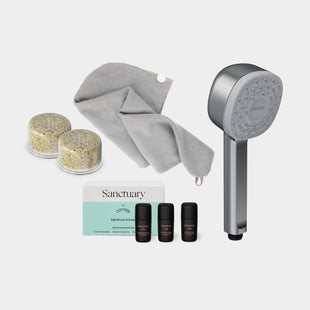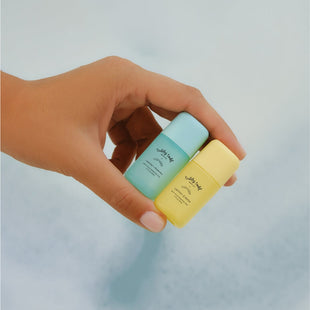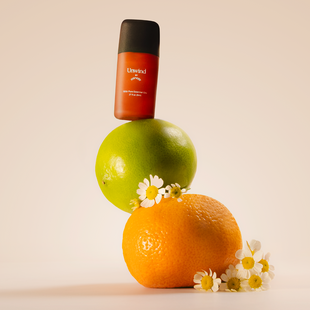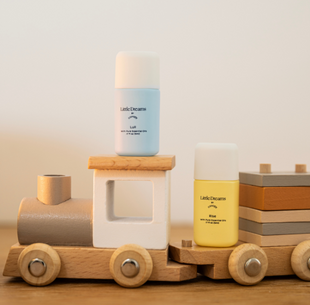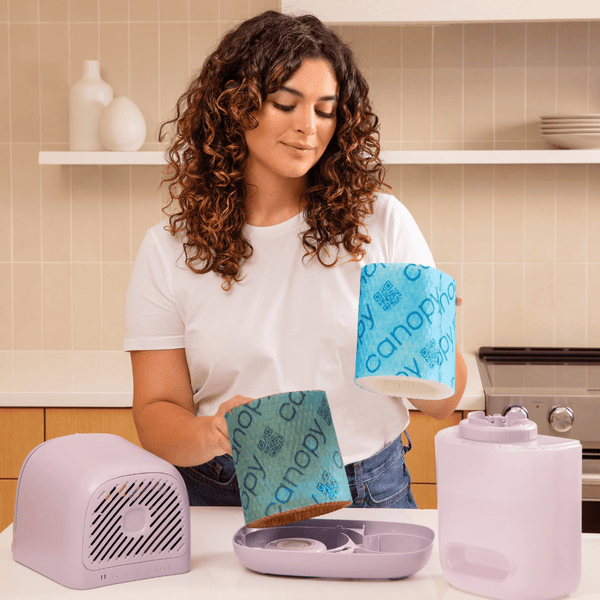Choosing the right wellness device for your home sounds like a daunting task. With so many choices, you may find yourself questioning their validity with thoughts like: “what do I actually need?” or “which device is the best choice for my family?”
These are all valid questions, and we plan to help you determine which is the better device for your home: an air humidifier or an air purifier.
What is an Air Humidifier?
An air humidifier is a device that releases water vapor into the air to increase the relative humidity of a space. There are three types of humidifier devices: ultrasonic, evaporative, and steam based humidifiers.
Ultrasonic humidifiers operate by a metal diaphragm that vibrates at sonic speed releasing water droplets. These droplets are then blown into the room with an internal fan. Evaporative humidifiers draw air into the device, fan it through a moistened wick, and release the moistened air back into the room. Lastly, a steam based humidifier boils water into a fine vapor which is released into the room. A steam based humidifier, as a result of the boiled water, releases a warm mist, which can elevate room temperatures.
The optimal humidity level for your home is between 30% and 50%. When humidity levels plunge below 30% in your home, you may experience dry skin, congestion, worsened allergy symptoms, and more. If humidity levels surpass 50% in your home, aside from being uncomfortable, you may create a breeding ground for mold, bacteria, and fungi.
A home humidifier can elevate humidity levels to the optimal range. This is particularly helpful during the winter months or if you live in a location with a regularly dry climate.

What is an Air Purifier?
An air purifier, as the name implies, purifies the air.
Microscopic pollutants like allergens, mold, germs, pet dander, pollen, and more, fly around your home wreaking havoc on your sinuses. An air purifier inactivates these pollutants in the air, reducing allergy triggers and improving air quality.
So, how does it all work? An air purifier sucks in air from its surroundings and passes it through a filter, which traps those pesky pollutants in the air, before releasing the pure, clean air back into the room.
An air purifier is different from a humidifier in that it does not release moisture into the air. A humidifier, while it does push air into a room (and may also contain a filter to trap any micro bacteria in the water tank), releases moisture into a space without filtering the existing air.
Which is Better: A Humidifier or an Air Purifier?
As with most things in life, the answer is not black and white. Since a humidifier and an air purifier serve different purposes in the home (a humidifier elevating humidity and an air purifier recirculating purified air), the result you desire should guide your decision. In some cases, pairing a humidifier and an air purifier in your home can improve a particular condition, as you will see below.
For Allergies
Allergies just won’t quit? Both a humidifier and an air purifier provide ample benefits for people who suffer from allergies, whether seasonally or year around.
An air purifier will clear the air of common allergens in your home, which will reduce potential triggers so that you can breathe easy. Literally. A humidifier, on the other hand, can help to reduce or eliminate allergy symptoms including congestion, sore throat, watery eyes, sinus pain, and inflammation.
If you suffer from severe allergies, you may benefit from both a humidifier and an air purifier in your home. Be sure to speak with your doctor before incorporating any home allergy remedy into your routine.

For Baby
A humidifier is a very handy nursery tool providing ample benefits for your baby or small child including: relieving symptoms of the common cold, easing congestion, and improving dry skin.
As you may already know or will soon find out, babies can be very smelly. You may be surprised by the foul odors that come from your adorable bundle of joy. An air purifier can help to purify the air in your child’s nursery including eliminating ghastly smells.
I space permits, you can incorporate both a humidifier and an air purifier in your baby’s nursery. If, however, you are working with limited space, a humidifier should take precedence; there are plenty of odor blocking diaper bins like the Diaper Genie that keep odors at bay.
space permits, you can incorporate both a humidifier and an air purifier in your baby’s nursery. If, however, you are working with limited space, a humidifier should take precedence; there are plenty of odor blocking diaper bins like the Diaper Genie that keep odors at bay.
For Asthma
1 in 25 people suffer from asthma according to the CDC. If you are one of the 25M people with asthma, you may benefit from the use of both a humidifier and an air purifier.
Common household allergens like pet dander or pollen, which can drift in through open windows, can trigger an asthma attack. Placing an air purifier in commonly used rooms is a great way to reduce triggers and, subsequently, reduce asthma attacks.
Optimal home humidity levels can help asthma sufferers by lubricating the nasal passages to reduce congestion and mitigate respiratory infection symptoms. Using a humidifier in your home is a great way to keep asthma symptoms at bay.








